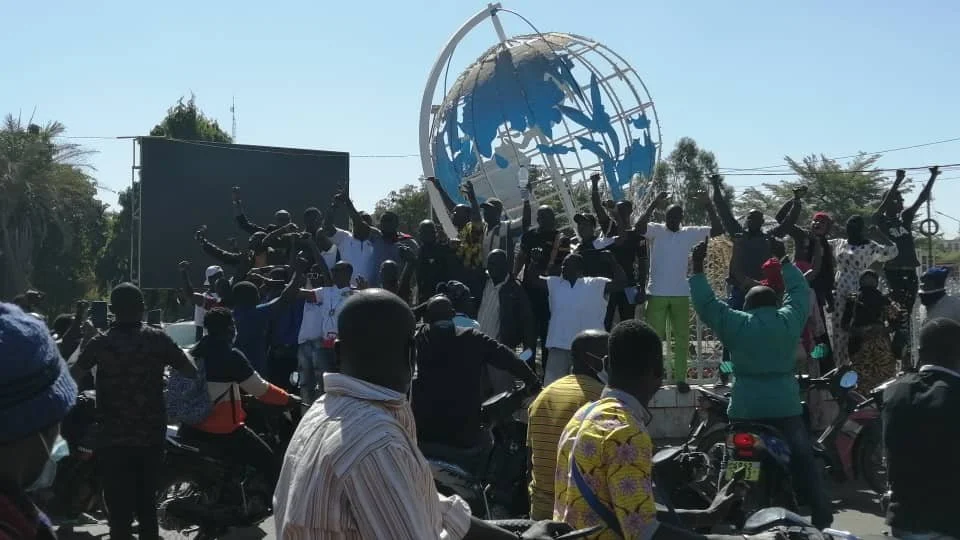The End of Operation Sabre Creates Potential Pitfalls for France, Burkina Faso
Supporters of a January 24, 2022 coup that toppled Burkina Faso’s government in response to jihadist attacks celebrate in Ouagadougou (Source: Wikimedia Commons).
Operation Sabre, a contingency of French special forces stationed in Burkina Faso to fight the insurgency in the northeast, officially ended on February 19 after a request from the West African nation’s military government. The move follows growing frustration within Burkina Faso over the failure of state security forces to defeat a jihadist insurgency that now controls approximately 40 percent of the country’s territory.
Relations between Burkina Faso and France have deteriorated after two military coup d’états occurred in Burkina Faso in 2022. The latest saw Ibrahim Traoré, a 34-year-old army captain, take power in a September 30 coup from a military junta that Traoré accused of mishandling the response to the al-Qaeda-affiliated insurgency.
Since taking power, Traoré has strengthened ties between Burkina Faso and Russia while simultaneously distancing Burkina Faso from France. This chill in relations includes asking France to recall its ambassador in early January. At the same time, Russia has grown its influence in the country. Some social media reports claim Russia’s Wagner Group, which Western observers have accused of violating human rights during its mercenary operations, maintains a presence in Burkina Faso. However, both the Russian and Burkinabè governments deny any Wagner Group operations in the country.
French President Emmanuel Macron has accused Russia of exercising predatory influence in Africa through the Wagner Group and social media manipulation. In recent years, the French foreign policy establishment has sounded the alarm about Russia spreading propaganda targeting France’s military presence, with accusations ranging from incompetence to more outlandish claims about French collaboration with jihadists. While France attempts to recalibrate its position in the region, including a similar withdrawal following a coup in Mali, internal critics have bemoaned the inability of France to counter Russian messaging in the region. As a result, protest movements opposed to the continued French presence in its former west African colonies have developed pro-Russian sentiments.
The post-Sabre Burkinabè military faced its first test from February 17 to 20, as jihadist forces attacked a series of Burkinabè military outposts near the country’s border with Mali, killing at least 70 soldiers. Immediately following the attack, Traoré called for national unity, which was echoed by a member of the elected government overthrown in the January 2022 coup. However, the Institute for Security Studies’ Fahiraman Rodrigue Koné argues that the failure of Traoré’s forces to repel jihadist attacks may threaten his grip on power if the general public begins to doubt the effectiveness of his military response.
The February incident parallels a similar attack in November 2021 that triggered nationwide protests against ex-President Roch Mark Kaboré. Kaboré was deposed in a military coup on January 24, 2022 by generals critical of his response to the insurgency.

